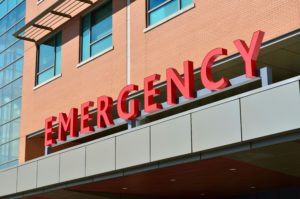This is how the AI article summary could look. Lorem ipsum dolor sit amet, consectetur adipiscing elit, sed do eiusmod tempor incididunt ut labore et dolore magna aliqua. Ut enim ad minim veniam, quis nostrud exercitation ullamco laboris nisi ut aliquip ex ea commodo consequat.
Going t0 A&E: 5 Pros and 5 Cons

5 Pros of A&E care
- A&Es are for critical and life-threatening situations. So if you may have one of those, they are the place to go. If you need to be admitted to a hospital bed, this is easily done
- A&E facilities include advanced medical technology (CTs, operating theatres, ventilators on ICU etc) – which you may need if you are very unwell. In severe cases, access to such immediate life-saving interventions can make all the difference
- Highly trained A&E doctors and nurses – are present 24 hours a day, 365 days a year
- Specialised doctors (e.g. surgeons, and ICU staff) – are available around the clock, and they can organise urgent surgery quickly
- You just turn up – you do not need an appointment.
Note. There will be an onsite pharmacy as well.
5 Cons of A&E care
- A&E often have long wait times (8 hours+) – especially if the problem is not that serious (or a long-term problem) – due to prioritising critical cases
- A&E doctors may be junior and inexperienced – and not good at dealing with minor, or more long-term or social problems. GPs are often older and much more experienced, and better at such problems
- Going there can waste your time – if they cannot deal with the problem they may redirect you to (for example) an Urgent Treatment/Care Centre (UTC/UCC)/Walkin Centre or Minor Illness/Injury Unit (MIU)*. You then go to the back of the queue when you go there
- Going there can reduce the focus on others (and reduce their quality of care of) – i.e. people with more severe illness, if you don’t need to be there
- If you get referred to the wrong specialist doctor – they can over-focus on their specialist area; making mistakes with the diagnosis and/or treatment.
*Note. They are very similar. “Grghhh. Actually, why can’t the NHS make their mind up what it calls such places?”
[“We should, sorry”. MyHSN Ed].
